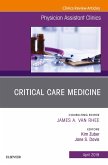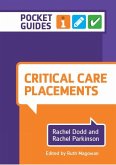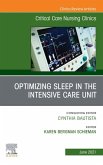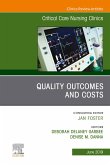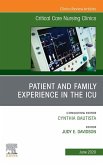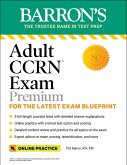In the fast-paced environment of critical care, having a deep understanding of cardiovascular medications is essential. "Critical Care Medications: Vasopressors, Inotropes and Anti-Hypertensives Study Guide" serves as an indispensable resource for healthcare providers managing patients with hemodynamic instability. This guide provides detailed insights into the mechanisms, applications, and protocols for using these critical medications effectively.
Key Features:
- Comprehensive Coverage: In-depth exploration of vasopressors, inotropes, and anti-hypertensives, including their pharmacodynamics and pharmacokinetics.
- Clinical Applications: Practical guidance on the administration protocols for a variety of cardiovascular drugs, ensuring precise and effective treatment of critically ill patients.
- Safety and Monitoring: Thorough discussion of potential adverse effects and monitoring strategies to ensure patient safety and optimal outcomes.
- Advanced Clinical Tips: Expert tips for tailoring drug therapy based on individual patient factors and hemodynamic profiles.
- User-Friendly Format: Clear tables and charts that summarize key information for quick reference during clinical practice.
Drugs Included:
Section I: Vasopressors and Inotropes in Critical Care
- Dobutamine (Dobutrex): Enhances myocardial contractility and increases cardiac output with minimal increase in heart rate.
- Dopamine (Intropin): Dose-dependent effects ranging from vasodilation at low doses to vasoconstriction at high doses.
- Epinephrine (Adrenalin): Combined inotropic and vasopressor effects, useful in shock management.
- Milrinone: Increases cardiac contractility and induces vasodilation, reducing preload and afterload.
- Norepinephrine (Levophed): Preferred vasopressor in septic shock, increases blood pressure with minimal effect on heart rate.
- Phenylephrine (Vazculep): Alpha-adrenergic agonist causing vasoconstriction, used in specific scenarios of hypotension.
Section II: Antihypertensives in Critical Care
- Beta-Adrenergic Receptor Blockers:
- Esmolol (Brevibloc): Short-acting beta-blocker used for ventricular rate control and perioperative hypertension.
- Labetalol (Trandate): Combination alpha- and beta-blocker, effective in managing hypertension with careful dosing protocols.
- Metoprolol (Lopressor): Cardioselective beta-blocker used for post-MI hypertension and off-label for ventricular rate control.
- Calcium Channel Blockers:
- Diltiazem (Cardizem): Non-dihydropyridine CCB used for hypertension, angina, and certain arrhythmias.
- Nicardipine (Cardene): Dihydropyridine CCB with rapid onset, used in hypertensive emergencies and acute stroke.
- Clevidipine (Cleveprex): Rapid-onset CCB used in perioperative and critical care settings for hypertension management.
- Other Vasodilators:
- Nitroglycerin (Nitrostat, Nitro-Bid, Nitrolingual, NTG): Potent vasodilator used in acute coronary syndrome and heart failure.
- Sodium Nitroprusside (Nitropress, Nipride): Arterial and venous dilator used in hypertensive emergencies with a risk of cyanide toxicity.
"Critical Care Medications: Vasopressors, Inotropes and Anti-Hypertensives Study Guide" is a must-have guide for healthcare providers seeking to enhance their knowledge and improve patient care in critical settings. Equip yourself with this comprehensive resource and ensure the highest standard of cardiovascular support for your patients.Dieser Download kann aus rechtlichen Gründen nur mit Rechnungsadresse in A, B, CY, CZ, D, DK, EW, E, FIN, F, GR, H, IRL, I, LT, L, LR, M, NL, PL, P, R, S, SLO, SK ausgeliefert werden.




